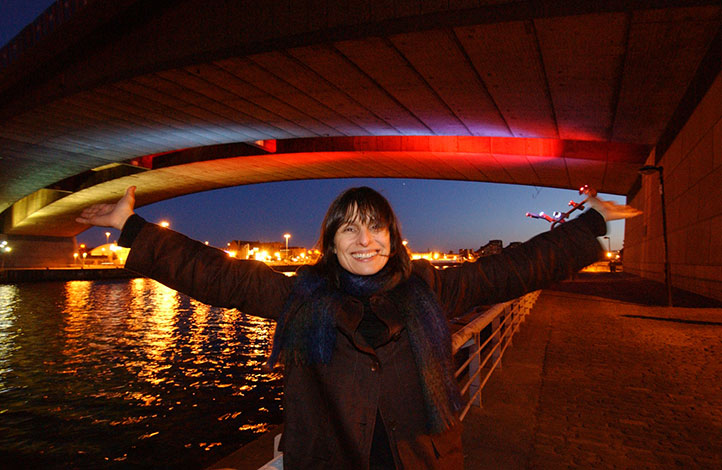UNESCO’s International Day of Light, NightSeeing, London, May 16, 2018
Contact: Leni Schwendinger leni@nightseeing.net, Don Slater
Celebrate the other side of day with International Nighttime Design Initiative (NTD) and London School of Economics’ Configuring Light. Presenting the nocturnal city of light, NightSeeing is a real-time travelogue through the culture of urban lighting in public spaces to convey recognition of one’s own environment of the shadowed vistas that define our surroundings literally half the time, and yet are so familiar they are almost unseen.
For UNESCO’s International Day of Light, an invited group of city stakeholders and decision- makers will join urban lighting designer/tour guide, New Yorker, Leni Schwendinger and the Nighttime Design team from London, Bogota and Berlin.
After mingling and refreshments, Leni, and team, will bring attendees up to date on the challenges cities face regarding after-dark hours. The NTD vision will be elaborated. There are three main objectives: 1. Increase safety and security, 2. Improve public health, and 3. Enhance economic vitality. With these pillars in mind, nighttime design is rooted in community-engagement methodologies while collaborating with municipal agencies and influencing policy.
After the talk, the group will walk together in and around the area between the LSE campus and Covent Garden. During the tour, leader and attendees will share environmental and societal observations.
This unique, social tour context has generated awareness of public space stakeholders in dozens of cities worldwide. The aim is to provide attendees an opportunity to share a novel after-dark experience while learning, questioning and connecting.
The International Day of Light is a global initiative that provides an annual focal point for the continued appreciation of light and the role it plays in science, culture and art, education, and sustainable development. The broad theme of light allows a range of people to participate in activities demonstrating how science, technology and culture can help achieve the goals of UNESCO – education, equality, and peace. The International Day of Light is administered from the International Basic Science Programme of UNESCO.



